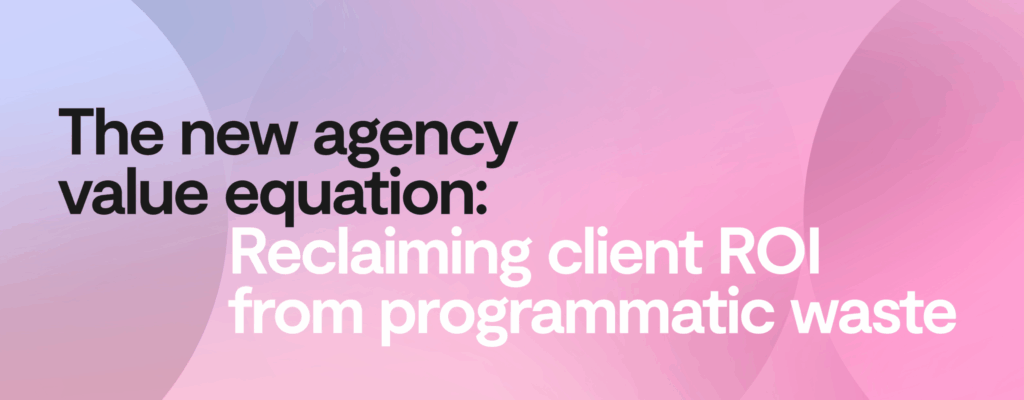- Blog
- Advertisers
Essential information following Google’s third-party cookie news
To help our customers, prospects, and partners interpret Google’s news that it will no longer remove third-party cookies, here is our perspective—based on our knowledge of our customers and market trends—plus some essential information to share with your organisations.

Given the recent news that Google will no longer deprecate third-party cookies, there is much uncertainty and speculation.
We are proud to say that over 150 publishers and some of the world’s biggest brands have successfully partnered with Permutive to safeguard their businesses by leveraging first-party signals to increase revenue and drive performance.
To help our customers, prospects and partners interpret the news, here is our perspective – based on our knowledge of our customers and market trends – plus some essential information to share with your organisations.
Does this mean cookies are no longer going away in Chrome?
No. According to Google, consumers are now being given “a new experience that lets users make an informed choice.” Today, 40% of Chrome sessions already don’t have a cookie, either because the consumer has manually disabled them or is in Incognito mode. Going forward, this choice over whether they enable or disable third-party cookies will be more explicit, much like Apple has done with ATT.
How many cookies will remain?
The most similar parallel is Apple’s ATT framework in the app ecosystem. Today,, opt-in rates through ATT are ~25%. If similar numbers play out with Google’s framework, this would imply that we’ll be moving to a world where ~12.5% of consumers have a cookie and 87.5% don’t.
Why is Google doing this now?
Instead of controlling the timeline for phasing out cookies, Google is giving that power to consumers. The reason for this change is unclear, but it helps Google navigate conflicting feedback from the Competitive Markets Authority (CMA), concerned with market manipulation, and the Information Commissioner’s Office (ICO), focused on privacy. By doing this, Google can tell the CMA that consumers chose the timeline and reassure the ICO that users have control over their privacy settings.
How should publishers and advertisers interpret this news?
Google’s announcement risks creating a false sense of security for publishers and advertisers alike. Cookies no longer exist for 70% of the internet, Google is simply handing the timelines for the remaining 30% over to consumers.
The current situation is untenable for publishers and advertisers, and leaving it unresolved poses a major risk to the viability of the Open Internet. The Demand-Side Platforms that make purchasing decisions don’t work without a cookie. For publishers, 70% of their inventory is under-monetised because no cookies exist. For advertisers, they are only able to bid on 30% of consumers, meaning reach has collapsed and CPMs have increased.
Publisher first-party signals solve this problem—they enable publishers’ CPMs to grow by over 90%, and enable advertisers to reach 100% of consumers, and downstream of that sales double and CPAs halve, making the Open Internet performant. Publishers must continue to beat the drum on the value and importance of their first-party signals, both with advertisers and adtech.
What should I say to anyone with a false sense of security around this news?
The best way to address this is by using our tools to show the problem: many companies don’t realise how many cookies have been phased out and how it affects their reach and performance. Our platform can highlight the loss in reach due to cookie deprecation and the potential growth from using publisher first-party signals. We suggest sharing these reports with any interested parties.
What is Permutive’s advice?
We know there is a way for publishers to drive revenue, and advertisers to build brand equity, grow market share and drive performance in programmatic. Publisher first-party signals, cohorts, contextual and IDs, are a 100% addressable solution to reaching 100% of consumers on the open web.
Our data shows that when publishers apply their signals to impressions, their yield grows by up to 76%, and incremental sales and reduced cost per acquisition for advertisers.
What does this mean for how Permutive works?
Nothing changes. Permutive has always believed that consumer choice is reshaping the ecosystem. Permutive’s mission is to make the Open Internet sustainable and performant for both publishers and advertisers. We have built an advertising ecosystem that respects consumers’ choices around their privacy, and by building a cleaner ecosystem where the economics of digital advertising add up for publishers and advertisers.
Many of you partner with us as your platform of choice because Permutive’s patented technology is built from the ground up to adapt to consumers’ choices around privacy. If a consumer opts in to third-party cookies, we’ll continue to be able to enrich your understanding of those consumers. If a consumer opts out of third-party cookies but enables Privacy Sandbox, our Privacy Sandbox integrations will enable you to enrich your understanding of those consumers with tools like TOPICs. If a consumer opts out of third-party cookies and Privacy Sandbox, Permutive operates in a first-party context.
If you have any unanswered questions or want to find out more, please contact [email protected]
You may be interested in
From scale to accountability: The new agency value equation
Learn MoreThe curation revolution: Rebuilding trust and transparency in programmatic
Learn MoreKeep going, there's more to uncover.
From scale to accountability: The new agency value equation
Discover how leading agencies are rebuilding efficiency and accountability in programmatic media. Learn the 3-step blueprint to reclaim ROI, reduce waste, and deliver verifiable performance through data-enriched PMPs.
The curation revolution: Rebuilding trust and transparency in programmatic
Discover how leading agencies are rebuilding efficiency and accountability in programmatic media. Learn the 3-step blueprint to reclaim ROI, reduce waste, and deliver verifiable performance through data-enriched PMPs.
The performance paradox: Why programmatic efficiency is broken
Discover how leading agencies are rebuilding efficiency and accountability in programmatic media. Learn the 3-step blueprint to reclaim ROI, reduce waste, and deliver verifiable performance through data-enriched PMPs.
The new agency value equation: Reclaiming client ROI from programmatic waste
Discover how leading agencies are rebuilding efficiency and accountability in programmatic media. Learn the 3-step blueprint to reclaim ROI, reduce waste, and deliver verifiable performance through data-enriched PMPs.
Curation as a revenue diversification strategy: Lessons from The Arena Group
The Arena Group is finding new ways to take control of its data and revenue. Discover their powerful new approach centered on curation.
How Acxiom and Fundamental Group are solving for the Outcomes Era
Acxiom’s Ruowen Liscio and Fundamental Group’s Angus Maclaine discuss solutions for the Outcomes Era in advertising. Discover how predictive targeting, curation, and AI are delivering results in a privacy-first world.





